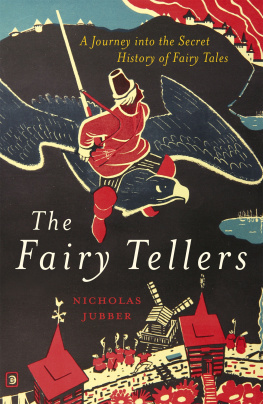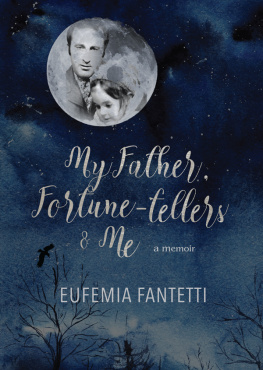First published in 1928 by Routledge
This edition first published in 2018 by Routledge
2 Park Square, Milton Park, Abingdon, Oxon, OX14 4RN and by Routledge
711 Third Avenue, New York, NY 10017
Routledge is an imprint of the Taylor & Francis Group, an informa business
1928 Taylor & Francis
All rights reserved. No part of this book may be reprinted or reproduced or utilised in any form or by any electronic, mechanical, or other means, now known or hereafter invented, including photocopying and recording, or in any information storage or retrieval system, without permission in writing from the publishers.
Publisher's Note
The publisher has gone to great lengths to ensure the quality of this reprint but points out that some imperfections in the original copies may be apparent.
Disclaimer
The publisher has made every effort to trace copyright holders and welcomes correspondence from those they have been unable to contact.
A Library of Congress record exists under ISBN: 28024145
ISBN 13: 978-1-138-55364-4 (hbk)
ISBN 13: 978-0-203-70526-1 (ebk)
Broabway translations
" Age cannot wither her, nor custom stale Her infinite variety."
THE facetiae , as a literary form, has an ancient lineage, while, if we regard it merely as a humorous tale or jocular anecdote, its history must be almost as old as the first laughs and smiles of prehistoric man. To go back no further, we may trace it in a direct line through Latin literature, to the Greek apophthegm. Faceti , in the literary sense, are also to be found in Oriental literature, especially the Persian and the Arabian.
The Greek apophthegm and its Roman successor had a different character from the Florentine facetia, but the difference is one rather of matter than of form. The ribald, licentious note is not so common in the classic facetis, and the historical anecdotes treating of kings, princes, and persons of high estate were mostly reverent and often adulatory. Satire and disrespect appeared in the humorous tales of Poggio and his peers. The apophthegm was, as a rule, a brief narrative, as often as not enclosing a moral lesson in an historical anecdote. Or else it was the saying of some wise or great man.
Though comparatively few of the Greek facetiaeor, more properly speaking, apophthegms have come down to us, we may deduce that they were produced in great quantity from the evidence of Cicero, who speaks of the apophthegmatic form as being one of the commonest.
We may say that the antique apophthegms were the nearest thing to journalism in those times, for they dealt generally with living persons and actual events. And like all journalistic writings, they were mostly short-lived, for a great part of their value and interest lay in their treating of contemporary persons and events. Cicero and Caesar may be cited as leading exponents among the Romans of the literary form, which in the Florence of the quattro and cinque-cento developed into the full-bodied facetia.
Besides the facetiae and witty sayings collected by Cicero, Quintillian tells us that the Roman orator's brother Quinto also made a compilation. Cato's remark " quam ridiculum habemus consulem" may be imagined to have had some reference to Cicero's fondness for the light and even scurrilous anecdote or jest. The Emperor Augustus is said to have made a collection of faceti, while, during his reign, the jurisconsult Cascellius put together a volume of humorous sayings and tales. Under Nero, Domitius Aphrus entered this field of literature.
Nothing or very little of these classic excursions into the light literature or journalism of the time has come down to us, though no doubt a great deal of the material was used by later writers, such as Aulus Gellius, who in his Attic Nights , written near Athens, has left us many extracts from Greek and Latin writers of sayings and anecdotes.
The survival of this light literature of Greece and Rome would have given us a new and valuable sidelight on antiquity, for it is in the fleeting and ephemeral writings of an age that its interests and spirit are most easily revealed. We have numerous works in ancient literature which deal with the lighter and more frivolous side of things, but such works are chiefly the creations of literary-men or poets, concerned with style and image and not merely with ' reportage', or a simple unadorned chronicling of everyday events, on their humble and unheroic side.
And in the facetia proper, the matter is ninety per cent of the writing. It is the curious tale, the witty reply, the broad jest which is the thing of importance. There is little room for style as such. This becomes more evident when we come to the faceti which form the present collection.
In the Novellino has a rare beauty and attraction, but in the later faceti, written in Latin by professional humanists like Poggio Bracciolini, the content is nearly all. Told in almost any words, the import of the faceti is instantly revealed, for there is nothing subtle or illusive about them. They are solid, concrete, of the earth earthy. This is not to deny Poggio's qualities as a writer of experimental Latin used in a way that was at the time a regular tour de force .
The fourth-century grammarian Macrobius in his Saturnalia has left us a number of anecdotes, notes, and dissertations which may allow us to link him up with the tradition of the faceti. Theophrastus may also be mentioned in connection with the genre under discussion, as well as Philostratus.
In the earlier centuries of the Christian era, there were also monkish writers of tales and historical anecdotes.
To come to the medieval period, the tradition of jocular literature arranged in the form of little tales or humorous sayings may be picked up again in the French fabliaux as well as in Latin works of the Middle Ages, such as the Gesta Romanorum, the Alphabetum Narrationum , the Golden Legend , and the Speculum Exemplorum .
But these monkish productions have little in common with the modern spirit of the Florentine faceti of the succeeding centuries. The medieval Latin tales, which in Italy preceded or were contemporaneous with the Novellino (The Hundred Old Tales) were impregnated with mysticism and seriousness. They have none of the irreverence and cynicism of the collections of Poggio or of Domenichi.














